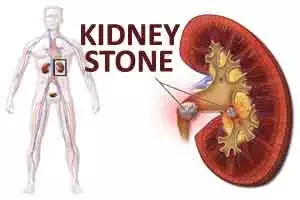- Home
- Medical news & Guidelines
- Anesthesiology
- Cardiology and CTVS
- Critical Care
- Dentistry
- Dermatology
- Diabetes and Endocrinology
- ENT
- Gastroenterology
- Medicine
- Nephrology
- Neurology
- Obstretics-Gynaecology
- Oncology
- Ophthalmology
- Orthopaedics
- Pediatrics-Neonatology
- Psychiatry
- Pulmonology
- Radiology
- Surgery
- Urology
- Laboratory Medicine
- Diet
- Nursing
- Paramedical
- Physiotherapy
- Health news
- Fact Check
- Bone Health Fact Check
- Brain Health Fact Check
- Cancer Related Fact Check
- Child Care Fact Check
- Dental and oral health fact check
- Diabetes and metabolic health fact check
- Diet and Nutrition Fact Check
- Eye and ENT Care Fact Check
- Fitness fact check
- Gut health fact check
- Heart health fact check
- Kidney health fact check
- Medical education fact check
- Men's health fact check
- Respiratory fact check
- Skin and hair care fact check
- Vaccine and Immunization fact check
- Women's health fact check
- AYUSH
- State News
- Andaman and Nicobar Islands
- Andhra Pradesh
- Arunachal Pradesh
- Assam
- Bihar
- Chandigarh
- Chattisgarh
- Dadra and Nagar Haveli
- Daman and Diu
- Delhi
- Goa
- Gujarat
- Haryana
- Himachal Pradesh
- Jammu & Kashmir
- Jharkhand
- Karnataka
- Kerala
- Ladakh
- Lakshadweep
- Madhya Pradesh
- Maharashtra
- Manipur
- Meghalaya
- Mizoram
- Nagaland
- Odisha
- Puducherry
- Punjab
- Rajasthan
- Sikkim
- Tamil Nadu
- Telangana
- Tripura
- Uttar Pradesh
- Uttrakhand
- West Bengal
- Medical Education
- Industry
Study links kidney stones with bone problems

Hypercalciuria is the most common metabolic abnormality found in patients with calcium-containing kidney stones. Patients with hypercalciuria often excrete more calcium than they absorb, indicating a net loss of total body calcium.
Whether a link exists between kidney stone disease and osteoporosis or fractures remains an open question.
In an analysis of nationwide data from the Veterans Health Administration, approximately one-quarter of individuals with kidney stones had a diagnosis of osteoporosis or bone fracture around the time of their kidney stone diagnosis.
The findings are published in the Journal of Bone and Mineral Research.
The Investigators identified 531,431 patients with kidney stone disease between 2007 and 2015, and they found that 23.6% of patients had a diagnosis of osteoporosis or fracture around the time of their kidney stone diagnosis. In patients with no prior history of osteoporosis or bone analyses before their kidney stone diagnosis, 9.1% received a bone density scan after a kidney stone diagnosis, of whom 20% were subsequently diagnosed with osteoporosis.
The findings provide support for wider use of bone density screening in individuals with kidney stones, including middle-aged and older men who may not be recognized as at-risk for osteoporosis or fracture.
"We hope this work raises awareness regarding the possibility of reduced bone strength in patients with kidney stones. In our future work, we hope to identify which patients with kidney stones are at higher risk for osteoporosis or fracture to help guide bone density screening efforts by clinicians in this population," said lead author Calyani Ganesan, MD, of Stanford University.
For further references log on to:
http://dx.doi.org/10.1002/jbmr.4260
Dr Kamal Kant Kohli-MBBS, DTCD- a chest specialist with more than 30 years of practice and a flair for writing clinical articles, Dr Kamal Kant Kohli joined Medical Dialogues as a Chief Editor of Medical News. Besides writing articles, as an editor, he proofreads and verifies all the medical content published on Medical Dialogues including those coming from journals, studies,medical conferences,guidelines etc. Email: drkohli@medicaldialogues.in. Contact no. 011-43720751


